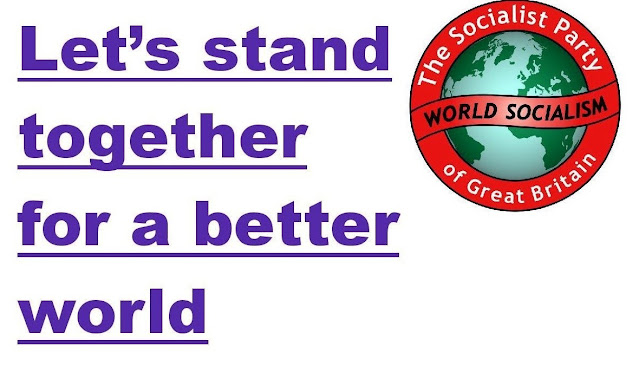Socialism will have its problems, although on a massively reduced scale compared to any previous form of society. Socialism will not be a society without emotion. The conflict between individuals and possibly between communities may exist. But socialism will deal fairly and sensibly with its problems and will not try to disguise them. Societies achieve conformity to their purpose and general standards not only by laying down formal rules but by reinforcing these rules with the alternative pressures of individual acceptance or rejection. Friends who fall out, withdraw and reject by not speaking to each other. Larger groups may sanction a member by expulsion or by ostracising, “sending to Coventry”. A society punishes its members with banishment or imprisonment. In all these cases it is accepted that imposed isolation from the group is painful and therefore salutary. But the law as we know it today will have no place in a socialist world. Socialism is not an idealised fairyland where anybody may do just as they like. If an individual’s actions impact adversely on those around them, the community would not be slow to apply sanctions.
The only question is, what would those sanctions be? In a cooperative community, it is quite possible that the labels ‘uncooperative’, or ‘self-serving’, ‘wasteful’, or ‘propertarian’ would be such stigmas that people would go to considerable lengths to avoid earning them. At any rate, punishment in socialism, was there ever a need for it, would be socially agreed and socially administered, in general proportion to the offence committed. Even if the occasional murder still takes place, the person committing it will merit treatment and support rather than the punitive measures usually imposed today.
In “The German Ideology,” Marx said, “Civil Society embraces the whole material intercourse of individuals within a definite stage of the development of the productive forces.”
This makes a distinction between the “whole material intercourse of individuals” and the class relations of production. Whilst the main function of the state with its law and coercive machinery is to regulate and enforce the class relations of production, there remain some features of law and its enforcement that have no apparent connection with class relations and can therefore be said to be a part of civil society. It is examples of this law that would be continued into a socialist society. These include laws that they arise from moral or ethical questions – they vary over time and between countries without making the slightest difference of productive relationships. They arise from the organization of civil society. Similarly, we have laws on drunk or dangerous driving. You would need these laws in any modern society. They do not arise from the regulation and enforcement of the wage labour/capital relationship – they arise from the need for safety. They would be continued in socialism. Similarly, we have laws on professional qualifications – for doctors, surgeons and pharmacists. Licences for car drivers, air pilots, ships captains and so on. Again, these laws arise from the need for safety. Socialism will be organised for needs, so they will be continued in socialism. Very important in a socialist society will be planning law. There will be a democratically decided policy on town and country planning – the idea that anyone will be able to act against it by putting up buildings or other structures wherever they like is absurd – you cannot take it seriously. In socialism, your planning permission will give you free access to all the necessary materials, but you will only be able to build with planning permission. Again, very important in socialism will be constitutional law. This will define both the freedoms and the boundaries of decision making amongst public bodies – the committees running institutions such as hospitals and schools, production units and the various parish, district and urban councils. The idea that without constitutional law you could have all these bodies making decisions against each would be total madness. The dictionary defines law as the rules of the community. That is adequate for our purposes. Rules are not always made by one person or group to oppress another. And since we agree that socialism will be a society with rules – it follows that there will be law in socialism.
So within a socialist society there will, we suggest, be regulation of sorts and maybe even places of detention. Violent or other anti-social behaviour will be addressed not by punishing people but by treating them, if necessary for the protection of the rest of the community in a confined place. But will the inmates find themselves banged up and slopping out? Surely not. We would think that their very inability to participate appropriately in society would be sufficient reason to extend to them the finest care, compassion and support that we can muster. Although it will be global as opposed to tribal, people will still live in small localised communities and, freed from capitalism's physical and mental shackles, will spontaneously look out for one another. It is after all our nature to do so.








